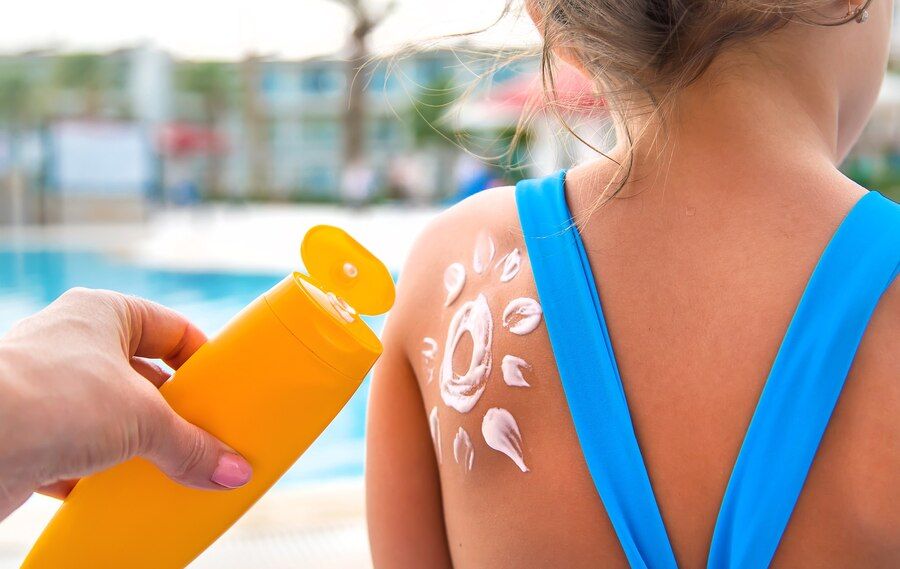As April arrives, with warmer temperatures and the onset of spring, it becomes the prelude to an increasingly early summer that encourages us to make our leisure choices in favour of activities that allow us to enjoy the outdoors and the good weather. One thing to bear in mind when choosing these alternatives is sun exposure - this can be detrimental to our skin and health if we don't take the right measures. Excessive exposure can have damaging effects on the skin, from sunburn, premature ageing, sun spots to an increased risk of skin cancer.
While this is something we should be concerned about regardless of the season, choosing the right photoprotection can be a difficult task, especially when there are so many products on the market with different levels of protection and features.
As Dr Gonzalez Castro, Specialist in Medical-Surgical Dermatology and Venereology and founder and director of Iderma (Institute of Advanced Dermatology) explains to 'Next in Beauty', some of the questions people have about photoprotection are due to the wide range of brands: "One of the doubts that arise when choosing the right sunscreen, especially due to the existence of a large number of brands on the market, is whether it should be physical or chemical. Both are equally effective when it comes to protecting us from solar radiation. Each type has its own peculiarities that can make one better suited to the characteristics of the patient's skin". Regarding the debate on sunscreens, between physical and chemical, Dr Gonzalez Castro explained that sunscreens that contain physical sunscreens in their formula have a mechanism that reflects ultraviolet rays like a mirror, and when they are applied they are not absorbed. This makes it a good option for children's skin, since, as he explains, "it reduces the possibility of allergy or irritation, so it adapts to all skin types. Children's skin can be more intolerant to compounds that are absorbed, so dermatologists recommend better physical filters. In addition, the fact that they leave a certain whitish colour helps us to detect when the product has disappeared and when we need to reapply.
According to experts, in order to choose the right sunscreen, the variables to be taken into account are skin type, age, where it will be used and the level of sun exposure to be had, among others. It is important to bear in mind that products with a higher sun protection factor (SPF) do not always offer more complete or long-lasting protection, but rather more intense protection.
In addition to what the dermatologist explained above, there are other reasons that lead to confusion among consumers when choosing which sunscreen is best for them according to their needs:
- Lack of knowledge: many users are unaware of the different sunscreen alternatives available on the market and the specific characteristics of their skin. This can lead to an inappropriate choice of sunscreen and dissatisfaction with the product selected, leading them to stop using them. It is important to know the characteristics of our skin and to look for products that suit our needs.
- Misleading advertising: The advertising of some sunscreen products can be misleading, promising full protection or longer lasting protection. This can lead people to choose products that are not suitable for their skin type or that do not provide the necessary protection.
- Ignorance of the factors that influence the choice: Sometimes, the consumer alone thinks that the only variable to take into account when choosing a sunscreen product is skin type. No, there are many more, such as age, the place where it will be used and the level of sun exposure.
- Lack of motivation: Some people may not take the importance of sun protection seriously or consider it an additional step in their daily routine. This may lead to an inappropriate choice of sunscreen or even not using sunscreen at all.
Are you applying your sunscreen effectively?
Another aspect to consider is how sunscreen is applied. Many people do not apply enough sunscreen, which reduces its effectiveness. Dr González Castro stressed the importance of following a correct sunscreen application routine: "Whichever sunscreen you choose, the application method must be correct. It should be applied 30 minutes before exposure, without being afraid to overdo it with the amount. It is important to apply the sunscreen generously and not too lightly. Reapply the sunscreen every 2 hours, when environmental conditions require it". The dermatology specialist also wanted to highlight something that is very common and that is that the vast majority only believe that it is necessary to apply it on the beach or when they feel very exposed to the sun.
On the other hand, Dr Gonzalez Castro also indicated that it is necessary to use a specific sunscreen for the face. "The skin in this area is thinner than on the body. Higher SPF 50+ protection indexes are recommended".
It is essential to know that it is not only the skin that needs protection: it is also important to protect the eyes and lips, which are also sensitive to UV rays. Finally, the founder and director of Iderma, Dr González Castro, stressed the importance of knowing the effects of certain medicines and how they can react to sun exposure: "Last but not least, it is important to remember that there are medicines that are also photosensitive or photosensitising, including some antibiotics, contraceptives, antidepressants, anti-inflammatories, etc. Therefore, in addition to consulting the package leaflet, it is essential to protect the skin in the event of exposure".
Choosing the right photoprotection can be tricky, but it is essential to avoid skin damage. Proper UV protection can prevent premature skin ageing, sun spots and other long-term damage.
